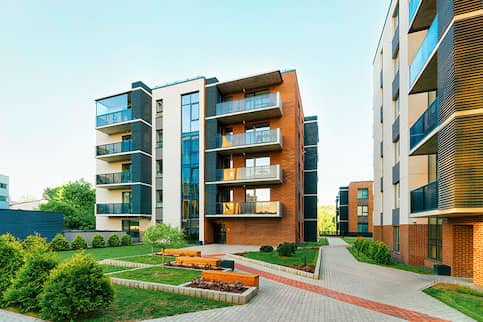Delve into the Financial Aspects of HOA Condo Living
Delve into the Financial Aspects of HOA Condo Living
Blog Article
The Role of an HOA in Developing and Enforcing Community Standards for Locals
The duty of a Homeowners Association (HOA) in enforcing and developing community standards is fundamental to maintaining a natural and orderly domestic setting - hoa condo. By formulating clear regulations that regulate aspects such as property maintenance and community conduct, the HOA not only establishes standards for citizens however also promotes a feeling of belonging and accountability. Nevertheless, the execution of these guidelines can provide numerous challenges, questioning regarding justness, communication, and neighborhood involvement. As we check out these complexities, it comes to be obvious that the influence of an HOA expands much past simple policy enforcement.
Comprehending Property Owners Associations
Homeowners organizations (HOAs) act as regulating bodies for property communities, playing an essential duty in preserving home worths and fostering a feeling of community. Usually formed by developers, HOAs are composed of home owners within a marked location who elect a board to manage the association's activities. The key features of an HOA consist of enforcing neighborhood regulations, taking care of usual areas, and organizing neighborhood events.
HOAs run under a set of regulating documents, consisting of agreements, constraints, and conditions (CC&R s), which describe the legal rights and responsibilities of house owners. These regulations aim to make certain that buildings are maintained to a specific criterion, consequently protecting the aesthetic charm and total worth of the community. Furthermore, HOAs usually gather fees from homeowners to fund upkeep, landscape design, and various other social work.
The existence of an HOA can substantially affect the living experience within an area (hoa condo). While some residents value the organized setting and services offered, others might discover particular laws limiting. Stabilizing the passions of all homeowners is necessary for an HOA to operate effectively, guaranteeing that it serves its intended purpose of enhancing community living while respecting individual home owner civil liberties
Establishing Neighborhood Standards

To begin, an HOA should conduct surveys or convene that enable citizens to voice their concerns and pointers. This participatory process fosters a feeling of possession and raises conformity. Next off, the HOA board must analyze the feedback to identify common themes and priorities that warrant formal addition in the guidelines.
It is also necessary to guarantee that the guidelines are clear, concise, and conveniently recognized. Obscurities can result in problems and misconceptions, weakening the purpose of the guidelines. In addition, the standards need to be thorough, covering different aspects of community living, consisting of building upkeep, sound levels, and use usual areas.
Enforcement of Policies
Efficient enforcement of community regulations is vital for preserving order and ensuring that all citizens comply with the developed standards. An HOA should implement an organized approach to implement these policies, which usually includes a mix of tracking, communication, and charges for non-compliance.
First, regular assessments and community patrols can assist recognize infractions, making certain that regulations are consistently used throughout the neighborhood. This proactive monitoring allows the HOA to attend to issues before they rise, fostering a sense of liability amongst locals.
Second, clear communication is essential. Locals need to be informed of the guidelines and the treatments for reporting offenses. An open line of communication encourages residents to voice issues and look for explanation on standards, which can enhance compliance.

Finally, when infractions take place, the HOA should impose repercussions as described in the regulating files. This may include cautioning letters, penalties, or, in extreme instances, lawful activity. It is vital that fines are used relatively and regularly to maintain trust fund within the area. By properly implementing policies, an HOA can cultivate a harmonious living environment that mirrors the cumulative worths of its homeowners.
Advantages of HOA Rules
Various benefits develop from the application of HOA regulations, which offer to enhance the top quality of life within an area. One key advantage is the upkeep of building values. By applying requirements for looks and upkeep, HOAs make certain that homes and common areas continue to be appealing, fostering a preferable living environment that can cause increased building worths gradually.
Additionally, HOA guidelines advertise consistency and harmony within the community. This coherence in layout and maintenance aids to produce a feeling of belonging among homeowners, contributing to neighborhood pride and a positive atmosphere. Established standards promote conflict resolution among next-door neighbors by supplying clear assumptions and procedures for actions, therefore minimizing conflicts.
An additional considerable advantage is the stipulation of common amenities and services. Numerous HOAs handle neighborhood centers such as parks, pools, and clubhouses, which enhance recreational chances for locals. These services not just boost the top quality of life yet additionally encourage social interaction.
Inevitably, the laws established forth by an HOA grow an efficient, unified neighborhood, guaranteeing that citizens take pleasure in he said a high requirement of living while promoting a helpful environment for all property owners.
Common Challenges Dealt With by HOAs
Amidst the advantages that property owners organizations (HOAs) can supply, they also run into a range of obstacles that can prevent their effectiveness. Many home owners might not take part in conferences or neighborhood tasks, leading to a detach between the HOA board and homeowners.
An additional challenge is the enforcement of regulations and laws. Conflicts can occur when citizens feel that enforcement is inconsistent or biased, possibly resulting in problems within the area. Furthermore, HOAs commonly encounter financial constraints, which can limit their ability to keep common areas or fund community projects. This can create frustration amongst homeowners who expect high requirements of maintenance.
Moreover, browsing legal intricacies can be daunting for HOAs. Transforming demographics and developing neighborhood needs call for HOAs to adapt their standards, typically meeting resistance from enduring residents that are accustomed to typical standards.
Final Thought

By formulating clear policies that control aspects such as building upkeep and neighborhood conduct, the HOA not just sets requirements for homeowners but likewise promotes a feeling of belonging and accountability.Homeowners organizations (HOAs) serve as regulating bodies for household communities, playing a critical role in maintaining residential property worths and cultivating a sense of area. Lots of home owners might not participate in meetings or community activities, leading to a detach between the HOA board and citizens. Transforming demographics and advancing community needs require HOAs to adapt their guidelines, typically satisfying resistance from enduring citizens who are accustomed to standard norms. With the advancement of clear guidelines and constant enforcement, HOAs promote home maintenance, community pride, and trust amongst citizens.
Report this page